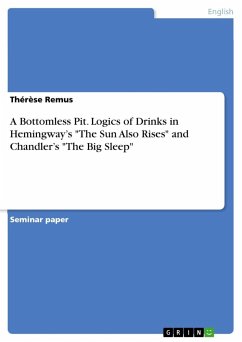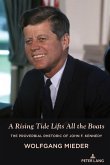A significant new contribution to Hemmingway scholarship, this book seeks to show that the moral world of The Sun Also Rises is profoundly unstable, and that every character can be seen as being both endorsed and critiqued by the text. This is manifested especially in Jake's status as a partially reliable narrator, and above all in his judgment of Brett. Jake consistently hides his true feelings for Brett from the reader and from himself, as he seeks to appear in control of his life.
Reading the text in this way also renders the novel's famous conclusion less decisive than is usually assumed. This book will be of interest to upper-level undergraduates as well as graduate students and scholars.
Reading the text in this way also renders the novel's famous conclusion less decisive than is usually assumed. This book will be of interest to upper-level undergraduates as well as graduate students and scholars.
"Russell Weaver's The Moral World of The Sun Also Rises offers an exacting but thoroughly accessible analysis of the ethical framework of Ernest Hemingway's storytelling in his famous 1926 tale of expatriates adrift in Paris and Pamplona. With a canny eye for narrative detail, Weaver opens up new dimensions within the novel that made Hemingway famous, demonstrating how much more complexly nuanced the conflicts of Jake, Brett, Bill, Mike, and Robert Cohn are as they search for stability in a world besieged by chaos." -Kirk Curnutt, Coeditor with Suzanne del Gizzo of The New Hemingway Studies "Russell Weaver's The Moral World of The Sun Also Rises demonstrates the continuing power of skillful close reading. Weaver's deep dive into Hemingway's dialogue and Jake Barnes's narration yields a fascinating vision of the novel's ethical complexities. A must-read for Hemingway aficionados." -James Phelan Distinguished University Professor of English at Ohio State University Author of Somebody Telling Somebody Else: A Rhetorical Poetics of Narrative.








